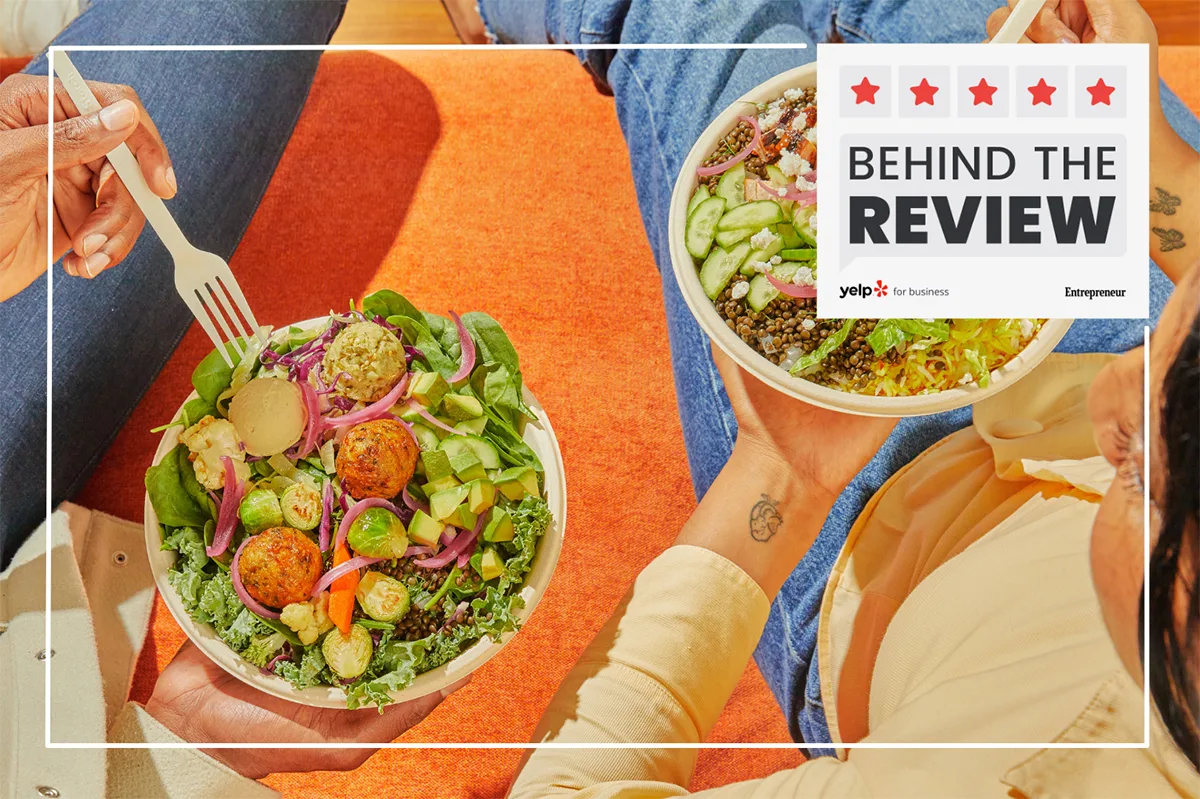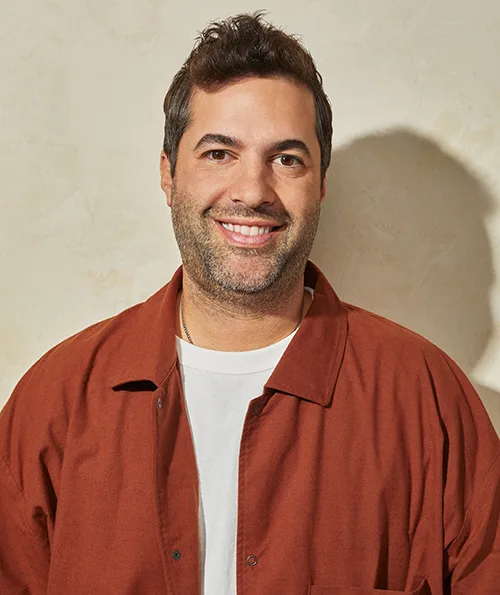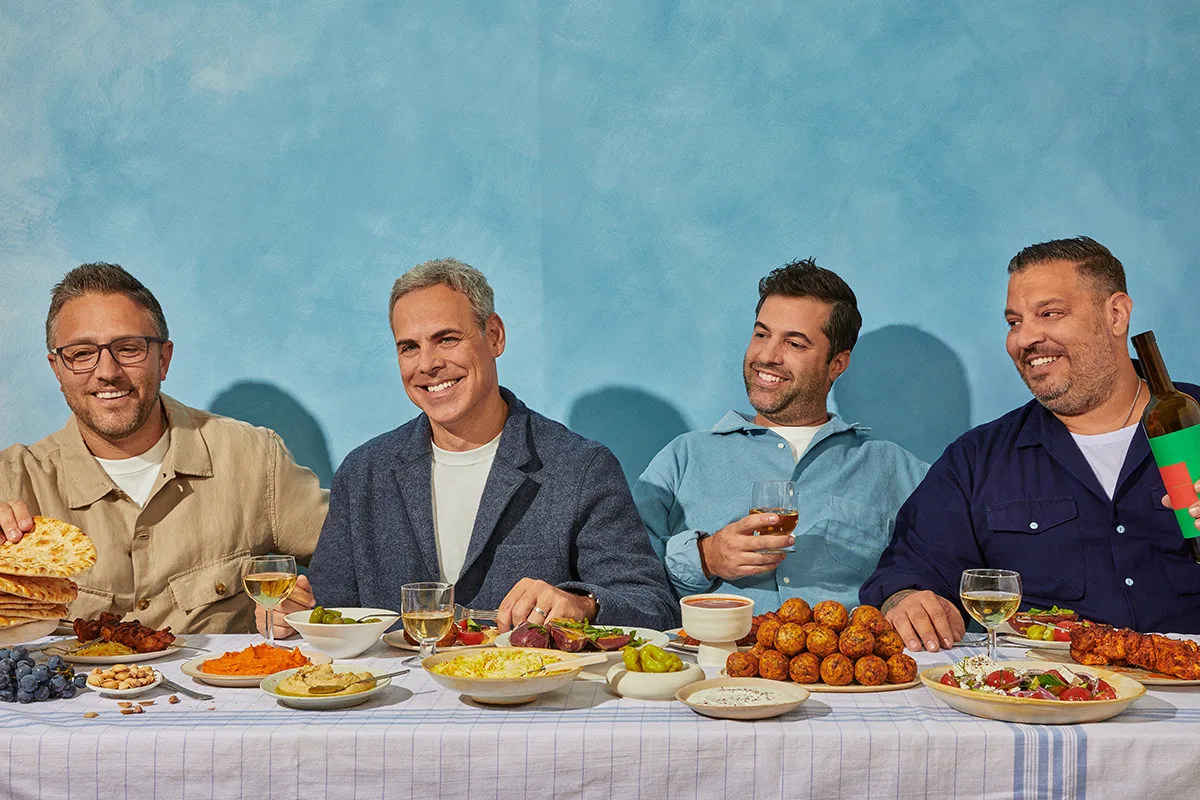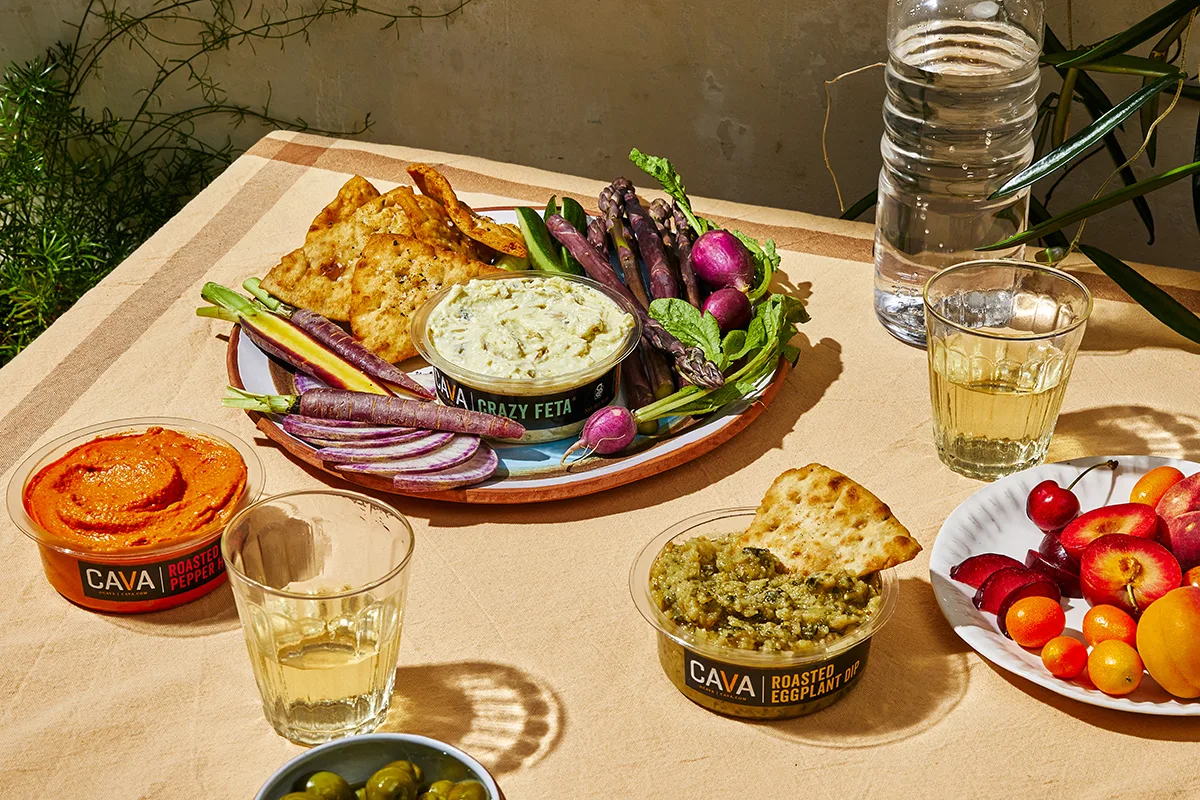How CAVA built a national brand on heart and hospitality
From one location in Maryland to 380 across 28 states, CAVA’s growth is rooted in a Mediterranean ‘spirit of generosity.’

Photo of build-your-own-style salad and grain bowls from CAVA, one of the top 50 fastest-growing brands of 2025 according to Yelp data
The fast-casual chain CAVA put Mediterranean food on the map in the United States, but it wasn’t a term founder Ted Xenohristos heard growing up. “Mediterrean food” was simply the food he ate at home: tzatziki, hummus, and falafel, and other staples that make use of fresh, high-quality ingredients.

Photo of Ted Xenohristos
Ted’s parents, immigrants from Greece and Cyprus, passed down the cultural value of generosity along with their recipes. “My dad’s from this little village in the mountains of the Peloponnese. They didn’t even have a toilet. They newly got running water,” Ted said. “It’s a very poor area, [but whenever we would visit,] they would be like, ‘We’re cooking a meal.’ They wanted to make sure that people felt at home in that little village, in that little house.”
This became the founding ethos of CAVA, dedicated to “bringing heart, health, and humanity to food.” What started as an unassuming spot in Rockville, Maryland, has since grown into a national chain with 380 locations in 28 states and Washington, D.C.—now among the top 50 fastest-growing brands of 2025, according to Yelp data.
Inspired by the Greek tradition of hospitality, Ted introduced CAVA’s “love button,” which allows team members to cover a guest’s meal through their point-of-sale system (POS). “It starts with that: giving our team members the tools to be able to share that generosity that’s ingrained in us and our culture,” he said.
Below, Ted shares four ways that CAVA puts its values into action for employees and customers, even at a national scale.
1. Creating a better restaurant workplace culture
“My mom was a waitress growing up. It’s a tough life. She worked day and night… but she had kind of nothing to show for it at the end. She had no health insurance. She had no retirement. She basically left the industry with a couple bad hips. For me, one of the reasons we started this business was to take care of people and to change the culture. We love food, we wanted to share it, but we really wanted to change how [our team members] were treated.
“All the founders are still a part of this business. We still work really hard to execute on that dream to have a greater culture: tuition discounts, family planning support, health resources for people, mental health resources, creating a sense of community within the restaurants themselves. We have a [general manager] conference every year where we bring everyone together for four days—so just creating those moments of connection and bringing people together.
“But it gets more difficult as you grow, right? We’re at 380 restaurants. What will that look like at 500 and 600? That’s part of my job here—and my partner, [CEO Brett Schulman,] to continue to make culture the cornerstone of what we do.

Left to right: photo of CAVA co-founders Ike Grigoropoulos, CEO Brett Schulman, Ted Xenohristos, and Chef Dimitri Moshovitis
One of the reasons we started this business was to take care of people and to change the culture. We love food, we wanted to share it, but we really wanted to change how people were treated.
“In our first-ever restaurant, we paid people more than they normally were paid in the industry. We gave them profit sharing, which was huge… And we saw our growth really take off because we were hiring people who really loved being part of this brand and gave us their all, and they felt like they had ownership in this brand.
“Two years ago when [CAVA went public with its initial public offering (IPO)], we announced stock grants for general managers of restaurants. I mean, can you imagine? I told my mom we’re doing that. She worked at a restaurant for so long, and she’s like, ‘I never got any stock in any company I worked at.’ Of course it’s not perfect, but as we continue to grow, the more we can do what we set out to do, which was change the restaurant industry. All our team members are part of this growth, and they help us get there.”
2. Introducing connection to the fast-casual experience
“My favorite thing that we do is the love button. We encourage all our team members to use it. Basically [if a guest] comes into the restaurant and I notice [they] look like [they’re] having a bad day, I can hit this love button and I can take care of her meal for that day. Or I see someone come in, they’ve got two kids, they look like they’re struggling a little bit—hit that love button and take care of ’em.
“How do we give our team members the tools to be able to do that? I think you see so much [distance] with technology today. I walked into a restaurant once and I ordered on a screen and I picked up my food out of a box and I was like, ‘Geez, I hope this is not the way the world is going.’
“[At CAVA we give our team] the autonomy to say, ‘Hey, you want to try this?’ and ‘How many flavors do you wanna try before you choose?’ [It’s] almost similar to an ice cream experience. Having that connection, that conversation happen… going down the line and talking to different team members—and then having that opportunity to buy that meal for you at the end—is huge.
“So we try to ingrain that. There are little things that happen naturally, organically through us taking care of our team members. If [we’re] taking care of our team members, they take care of our guests… It’s that spirit of generosity that’s ingrained in the culture and hopefully it stems from us taking care of them, the team, and then that goes down to the guest.”
3. Upholding quality with a trusted supply chain
“[At CAVA we] serve what we call Mediterranean food—what I grew up eating. The village my dad is from, you walk through it, and you see oregano growing on the side of the mountain. Whatever livestock you see, that’s what you eat. It was all about freshness and quality. So that is the ethos we use here at CAVA: How can we serve the freshest food?
“We tried to find partners that could help us make our dips and spreads right at scale… but we could not find anyone that can make it with fresh garlic, fresh dill—no one. So what we went and did was build our own facility in Laurel, Maryland. We now built a new facility in Verona, Virginia, and we’re looking to build a third one. That is allowing us to continuously make our dips and spreads with fresh, quality ingredients.
This is not something that anyone else can copy or do because we own that. We own the production from beginning to end.

Photo of CAVA’s signature dips, manufactured at their own facility in Laurel, Maryland
“We continue working with great partners [who bring] in our olive oil and olives from Greece about an hour from where my dad is from. I’m the lucky one who gets to visit every year and make sure that’s running well… So we know where olives come from. We know the source. We have a trusted partner. We build a trusted supply chain.”
4. Leveraging customer feedback to continuously improve
“We have a wonderful team that works on social media and responding and listening [to customer feedback]. Brands spend so much money trying to figure out what people want, and here you have something literally free at your disposal. People are literally telling us what they want and what they didn’t like. We have an opportunity to take that all in, synthesize it, and say, ‘This is what people are asking for.’
“We took our meatballs off the menu. People let us know that they were not happy with that. We brought them back and made all those customers happy, right? You have to be able to take the positivity and the negativity all in one.
The positive [reviews] are great, but the negative ones are more useful. Honest [reviews] allows us to continuously connect with our customers and give them what they want.
“With 380 restaurants, there are [going to be inconsistencies]—maybe someone’s adding too much salt or too much pepper. We have salmon testing right now in Tampa and Atlanta, and I’m not gonna be in both those cities every day in all those restaurants. So we actually go searching for those reviews and seeing [what] people call out. What do they like about it? What don’t they like about it? All those are helpful tools… as we continue building out that pipeline and our culinary innovation.”
Photos from CAVA
These lessons come from an episode of Behind the Review, Yelp & Entrepreneur Media’s weekly podcast. Listen below to hear more from Ted Xenohristos, or visit the show homepage to learn about the show and find more episodes.